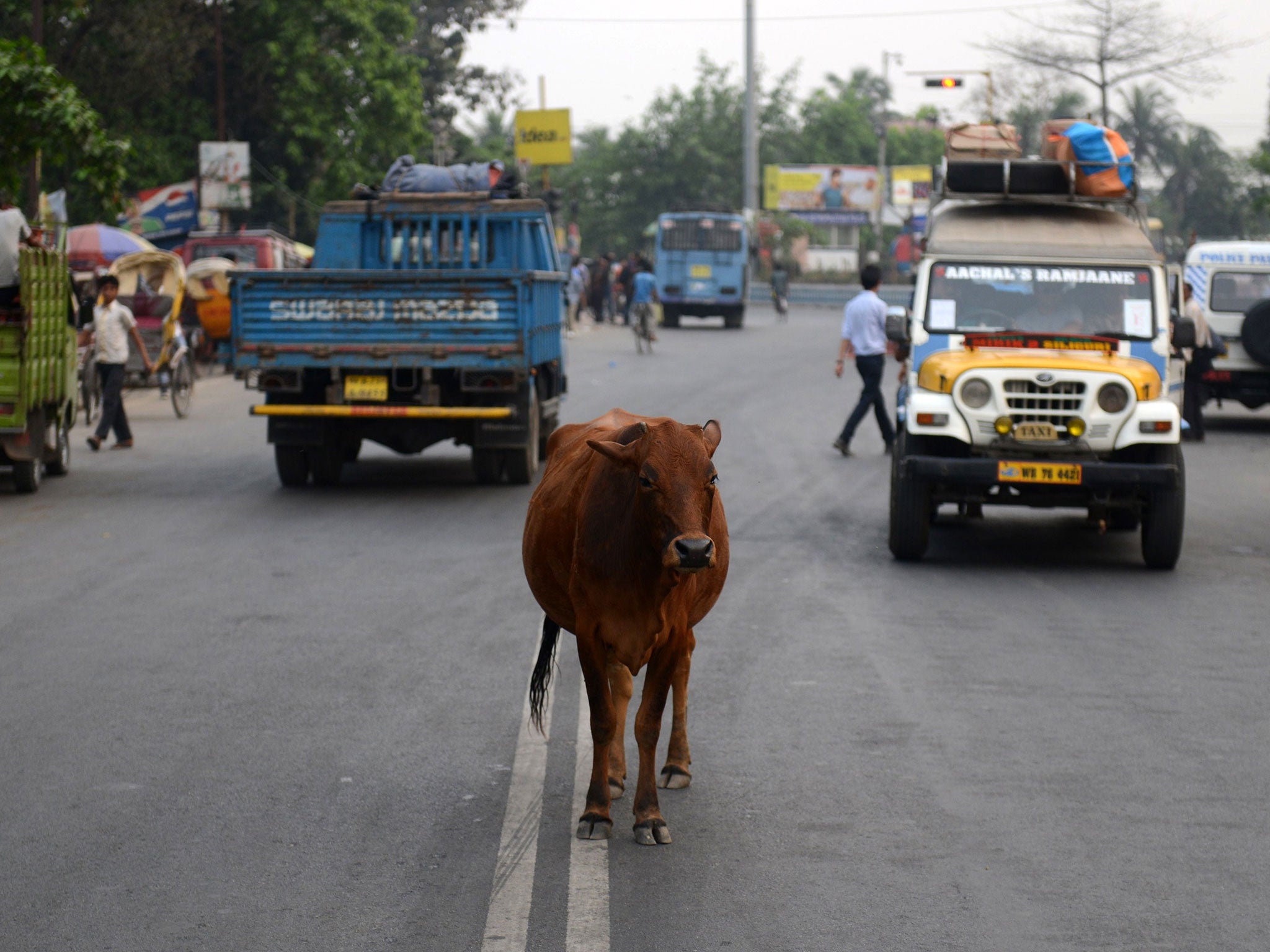Stray cows in India to be barcoded because soaring numbers of out-of-control cattle are roaming streets
Uttar Pradesh government issues new guidelines amid growing tensions with farmers

Stray cows in India’s most populous state should be tagged or barcoded, the local government has said, as it struggles to deal with booming numbers of cattle on the loose.
Uttar Pradesh, a state led by the Hindu nationalist BJP and with a hardline Hindu monk for chief minister, is among those that have banned the slaughter of cows – an animal seen as holy in Hinduism.
As a result, the state has a serious problem with elderly cattle that no longer yield milk being set free by farmers who cannot afford to feed them.
The government has been urged to act amid repeated reports of unwanted cows roaming the countryside, damaging crops. The Indian Express reported that on Monday alone four farmers died, in separate incidents across the state, while trying to protect their livelihoods from stray bulls.
In a 23-page order issued by the state’s animal husbandry department, the Uttar Pradesh authorities recommended that district officials start tracking herds of cows, if possible using tags and radio frequency identification technology (RFID) to monitor their movements.
It said that unoccupied government properties should be converted into more cow shelters, complete with drop-off zones where farmers can leave crop waste as fodder for the animals.
And it recommended stricter legal action against farmers who abandon their cows.
While consumption of beef is tolerated across some Indian states, the issue of cow slaughter is contentious for many Hindus who, at around 85 per cent of the population, make up the majority of Indians.
In Uttar Pradesh, where chief minister Yogi Adityanath has become a well-known figure as a voice for hardline Hindu nationalists, dead cows are required to be reported to municipal officials and post-mortems are carried out in “suspicious” cases.
According to the investigative journalism website India Spend, Uttar Pradesh saw the highest number of incidents of cow-related violence – mobs attacking people over the treatment of cows – in the country.
The state government has introduced a cow welfare tax of 0.5 per cent on some public sector infrastructure projects to help construct new cow shelters, but has struggled to keep up with demand.
It puts farmers in a bind. For while milk is an historically essential part of the Indian diet, dairy farmers say not being able to sell their cows for slaughter once they reach old age makes it impossible to balance the books.
Earlier this month, fed-up farmers in the city of Agra herded a group of stray cows into a government school building, forcing school children to attend class outdoors.
Surendera Narain Pandey, a farmer, told the Associated Press he used to sell an old cow for up to 10,000 rupees (£110), putting the proceeds towards buying a milk-yielding one.
“The situation has changed. We cannot afford to feed an unproductive cow now,” he said.
Join our commenting forum
Join thought-provoking conversations, follow other Independent readers and see their replies
Comments
Bookmark popover
Removed from bookmarks